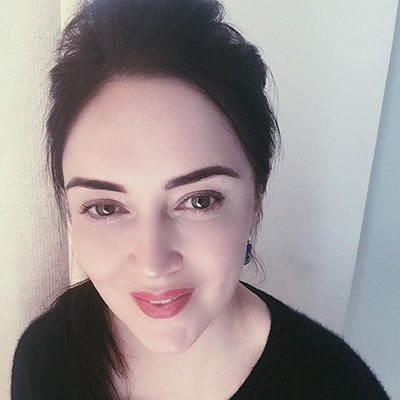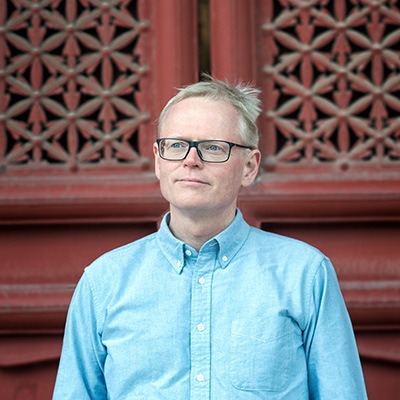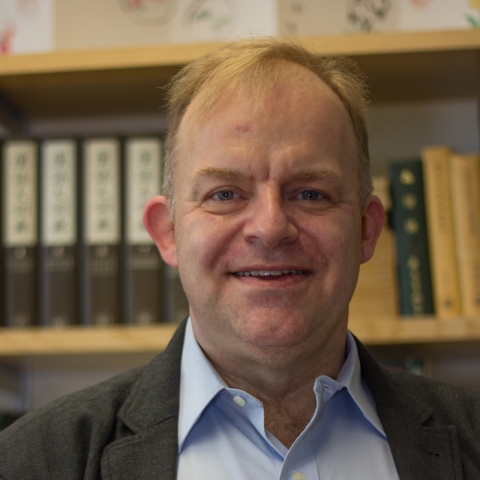What are the variety and vitality of lives like in a country where religion is often tightly controlled? How does race or ethnicity inform us of the dynamics of Chinese religions and politics, and of China in general? And most importantly, why should we care?
Join award-winning journalist Ian Johnson, Catherine Hardie (Hong Kong Baptist University), and UVA’s Charles Laughlin, who discuss the ways their respective work engages with the entanglement of religion, race, and politics in China. Organized by Jue Liang, Post-Doctoral Fellow in Asian Religions and Cultures at Denison University.
Above: photo © Jue Liang
Speakers

Catherine Hardie
Catherine Hardie is an Assistant Professor in the Department of Translation, Interpreting and Intercultural Studies at Hong Kong Baptist University. Her research lies at the intersection of the Tibetan and Chinese cultural worlds inside the PRC with a particular focus on contemporary Han Chinese involvement in Tibetan Buddhism. She completed her doctoral studies in anthropology at the University of Oxford in 2019 with a thesis titled Tibetan Buddhist Spiritual Capital in Contemporary China and is currently extending that research with a new digital-based ethnographic project that looks at the ‘sinicisation’ of Tibetan Buddhism in the missionary milieu of WeChat and Weibo. Her publication and translation activity to date has centered on Larung Gar, a preeminent Tibetan Buddhist institution and religious settlement in Eastern Tibet. Her forthcoming book chapter ”Innovations in Lay Buddhist Education in New Era China’s Sinophone Tibetan Buddhist Milieu” examines Larung Gar’s impactful and innovative digitally-mediated Buddhist outreach in the Han Chinese world during the culminating decade of China’s reform era (2006-2015).

Ian Johnson
Ian Johnson is a Pulitzer-Prize winning writer focusing on society, religion, and history. He was awarded a 2020-2021 National Endowment for the Humanities Public Scholars fellowship for a new book he is writing on China’s unofficial history. Johnson first went to China as a student in Beijing from 1984 to 1985, and then in Taipei from 1986 to 1988. He later worked as a newspaper correspondent in China, from 1994 to 1996 with Baltimore’s The Sun, and from 1997 to 2001 with The Wall Street Journal, where he covered macro economics, China’s WTO accession and social issues. In 2009, Johnson returned to China, and lived there until 2020 as a writer for The New York Times, The New York Review of Books, and other publications. He taught undergraduates at The Beijing Center for Chinese Studies, and has served as an advisor to academic journals and think tanks, such as the Journal of Asian Studies, the Berlin-based think tank Merics, and New York University’s Center for Religion and Media. After being expelled from China in 2020 as part of escalating tensions between Washington and Beijing, Johnson now writes books and is pursuing a PhD at the University of Leipzig on Chinese religious associations.

Charles Laughlin
Charles Laughlin is professor and chair of East Asian Languages, Literatures, and Cultures at the University of Virginia. Prior to joining UVA, Laughlin taught at Yale University (1996–2006). He was the first director of the PKU-Yale Joint Undergraduate Program at Beijing University, in which Yale and Beijing University undergraduates took classes together for one semester. In 2007, he moved across the street to Qinghua (Tsinghua) University to serve as the director of the Inter-University Program for Chinese Language Studies. During his years in Beijing he was selected to participate in the National Committee on US-China Relations’ Public Intellectuals Program, which brings younger professors of Chinese studies together with Chinese and American professionals in media, government, military, and the private sector for two years of substantive interaction and networking. He is the author of The Literature of Leisure and Chinese Modernity (2008), Contested Modernities in Chinese Literature (2005), and Chinese Reportage: The Aesthetics of Historical Experience (2002).
Informed Perspectives brings together scholars, journalists, and documentarians to explore the relationship between religion, race, and politics.
Sponsored by the Luce/ACLS Program in Religion, Journalism & International Affairs.
Readings & Resources
Goossaert, Vincent, and David Palmer. The Religious Question in Modern China. Chicago: University of Chicago Press, 2010. https://press.uchicago.edu/ucp/books/book/chicago/R/bo10327095.html (accessed March 10, 2021).
Harrison, Henrietta. The Missionary’s Curse and Other Tales From a Chinese Catholic Village. Oakland: University of California Press, 2013. https://www.ucpress.edu/book/9780520273122/the-missionarys-curse-and-other-tales-from-a-chinese-catholic-village (accessed March 10, 2021).
Johnson, Ian. The Souls of China: The Return of Religion After Mao. New York: Vintage Books, Penguin Random House, 2017. https://penguinrandomhousehighereducation.com/book/?isbn=9780804173391 (accessed March 10, 2021).
Palmer, David. Qigong Fever: Body, Science, and Utopia in China. New York: Columbia University Press, 2007. http://cup.columbia.edu/book/qigong-fever/9780231140669 (accessed March 10, 2021).

